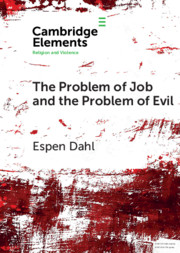Element contents
The Problem of Job and the Problem of Evil
Published online by Cambridge University Press: 06 December 2018
Summary
- Type
- Element
- Information
- Online ISBN: 9781108613743Publisher: Cambridge University PressPrint publication: 06 December 2018
Bibliography
- 9
- Cited by



